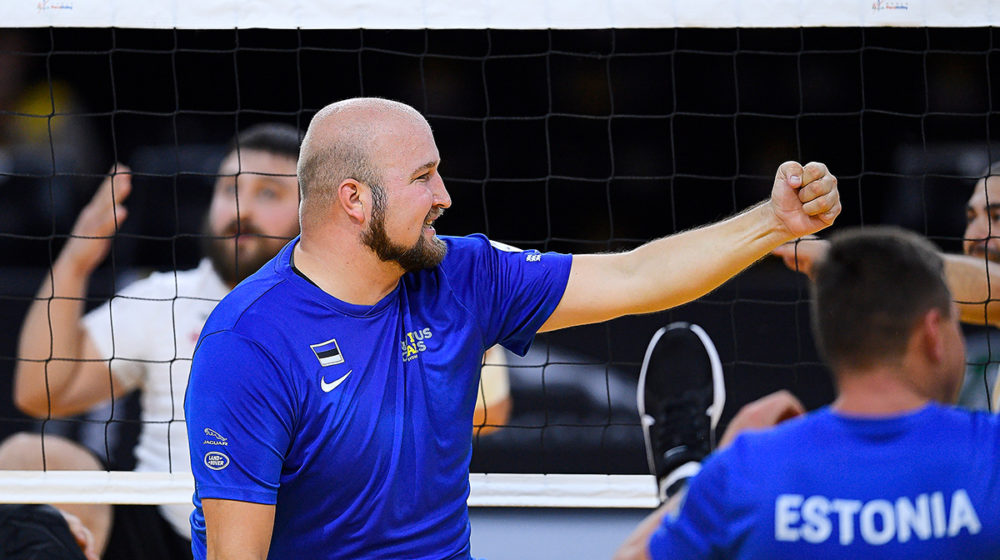Estonia’s sitting volleyball captain Margus Hoop has been doing pop-folk dancing even longer than his 14 years of national military service.
But, after he picked up a crippling bacteria infection on tour in Central African Republic, the logistics specialist could barely move, let alone bust a move in the high-tempo Estonian traditional dance.
Estonia lost to Georgia in the sitting volleyball semi-final on Tuesday, but the fact that Hoop was able to compete at all was an enormous achievement.
“I’ve been 14 years in the army and I’ve done three tours, twice in Afghanistan and the third mission was in the Central African Republic, where I was chief of logistics,” said Hoop.
“After that tour I brought back a bacteria with me which broke down my nerve systems. In September 2014 I didn’t have enough power to lift a spoon of porridge.”
“My movement was OK, but I had no power in my hands or legs. I started to build up and after four years now, it’s almost OK.
“I can do my pop-folk dancing again as well – I was doing that for 15 years, it’s a common traditional thing in Estonia – but nowadays I can only do the slow steps, not the fast ones yet. I need to do some more work.”
Hoop describes his challenging journey with humour and positivity, partly a result of the great support he has had from his friends, family and the military.
“On my third day in the hospital the head of the Estonian social and rehabilitation section said ‘Margus, are you OK?’. I said ‘I have two choices: one choice is to get well and the other one is to get well’. For me, there were no other options.
“I knew I needed to get out of the wheelchair. After that, I became better and better. I got into rehab quickly but it was amazing how hard it was to learn to walk again. It’s such a common thing, but if you lose it it’s very hard to learn again. It took three months for me to be able to take my first steps.”
Estonia’s involvement in the Invictus Games has inspired the team to compete in sitting volleyball tournaments around Europe and has led to Estonian civilians with injuries to form teams.
“We hadn’t played sitting volleyball before the Orlando Invictus Games,” Hoop said.
“It’s become a great thing for us because we’re competing now in tournaments and we’ve come to know each other so well now.
“The Estonian army is very small and everyone knows everyone. But now we know each other’s backgrounds, our lives, our jokes and so on. And it’s been amazing for us to be here.”
David Sygall
Invictus Games 2018
